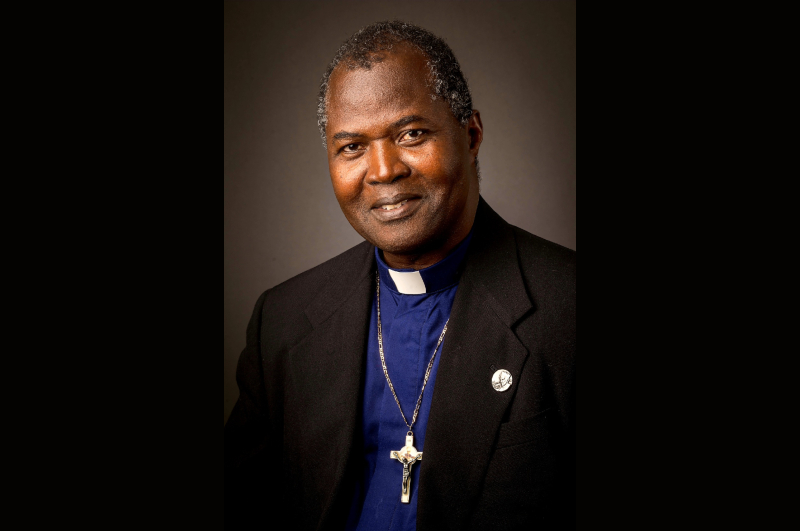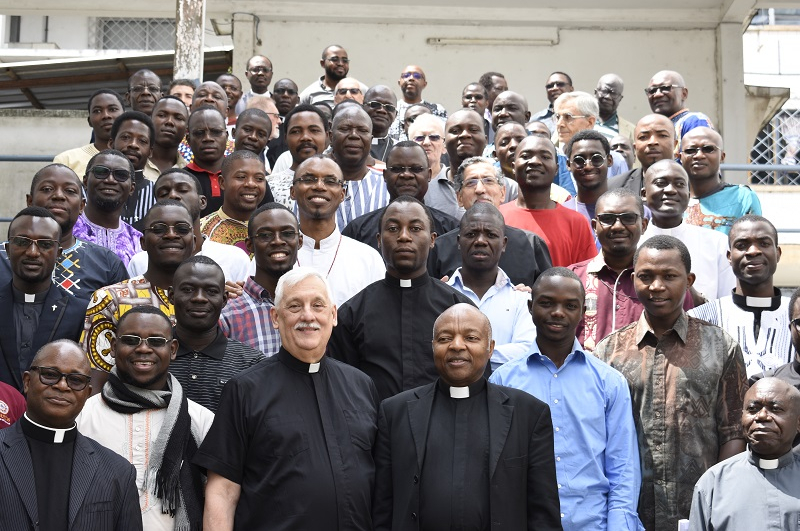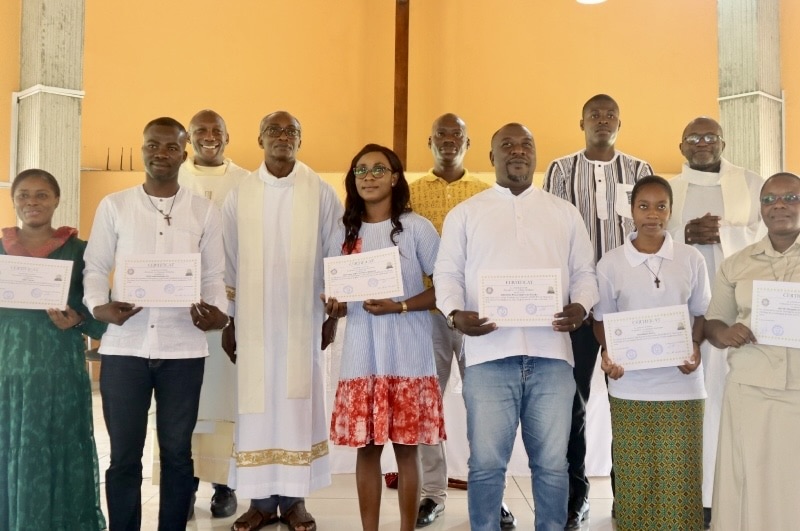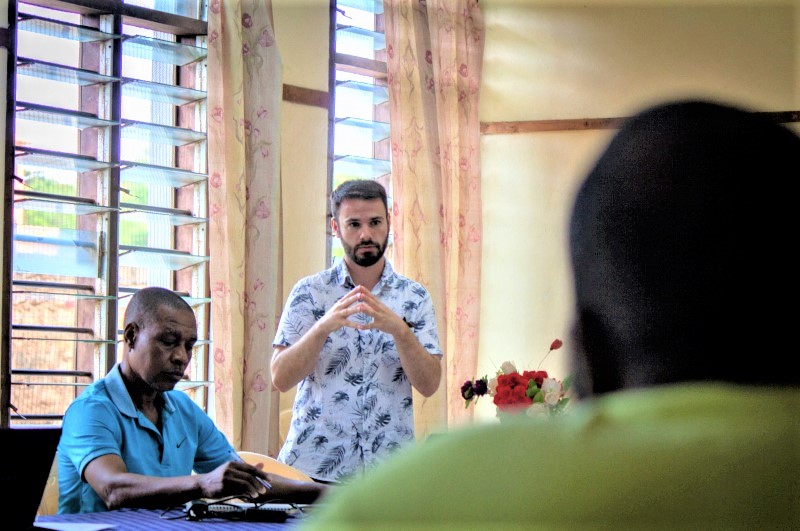



“Don’t worry,” I said. “This video isn’t about you.” A beat. Then, “But we do need a main character.” Another pause. “And that is going to be you. We’re flying halfway across the world to see you, after all.”
This was the creative paradox with which we journeyed to Kenya. The paradox we handed to our friend, Bryan Galligan, then a Jesuit regent serving as the research and policy analyst for the Jesuit Justice and Ecology Network in the Jesuit Conference of Africa and Madagascar.
I think, in a not-so-insignificant way, that’s the paradox of Jesuit formation at large.
The formation of a Jesuit — the many years spent in prayer, study, community and ministry — is necessarily about that Jesuit. He needs to gain the skills, hone the disposition and discern his own unique vocation.
At the same time, Jesuits are formed to serve the Church, to respond to the needs of the world: the cries of the earth and the poor. Jesuit formation is necessarily about others.
And yet Jesuit formation isn’t simply about what the Jesuit in question can do for others. The community in which he finds himself is essential in helping that Jesuit realize who he is and who he can be. It’s not a mere exchange of skills and knowledge; it’s a deepening of relationships. Mutual sharing. True encounter.
The planting of seeds that bear the fruits of the Ignatian charism: to love and serve in all things — and to meet God therein. Those fruits flourish in the Jesuit as much as in the women and men that accompany him.
A final note: Our journey to Kenya confirmed what is likely abundantly obvious. The process of formation — and that’s not limited to Jesuits; we all are formed in our unique vocations — bears good fruit throughout its unfolding. We’re tempted, I think, to assume that we cannot contribute, we cannot lend expertise, we cannot give of ourselves in meaningful ways until after our proverbial formation is complete.
But we are always being formed, always drawing nearer to the person God invites us to become. Always given new opportunities to go deeper. And from that very place of formation, we give of ourselves — and receive from others.
For Bryan Galligan — who I hope you will take a moment to meet in the video below — Jesuit formation continues. He’s returned from Nairobi to continue his studies in the States. But the impact his formation had on the communities he served across Africa is undeniable. And the impact those same communities had on him has proven to be just as significant.
But this story isn’t about Bryan, even if the video kinda sorta is. This story is about each of us, the people and places we affect and are effected by in the working-out of our own unique vocations.
I hope you’ll take time in these days leading up to the Feast of St. Ignatius to reflect upon yours.
Related Articles
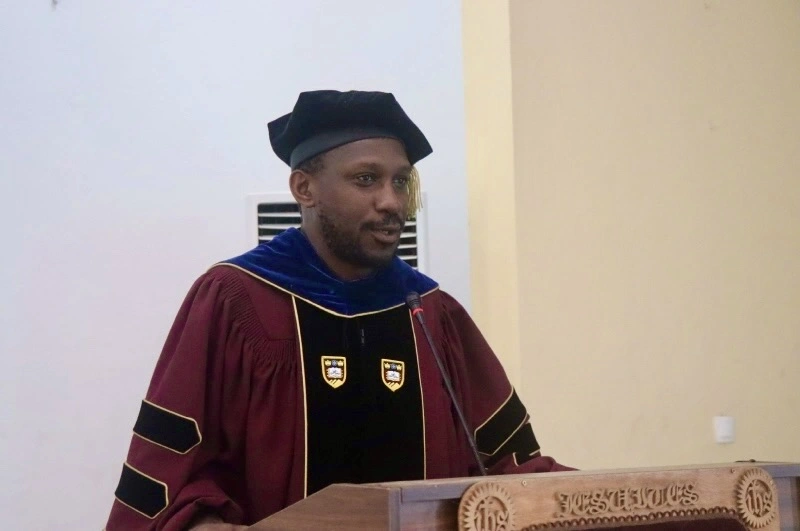
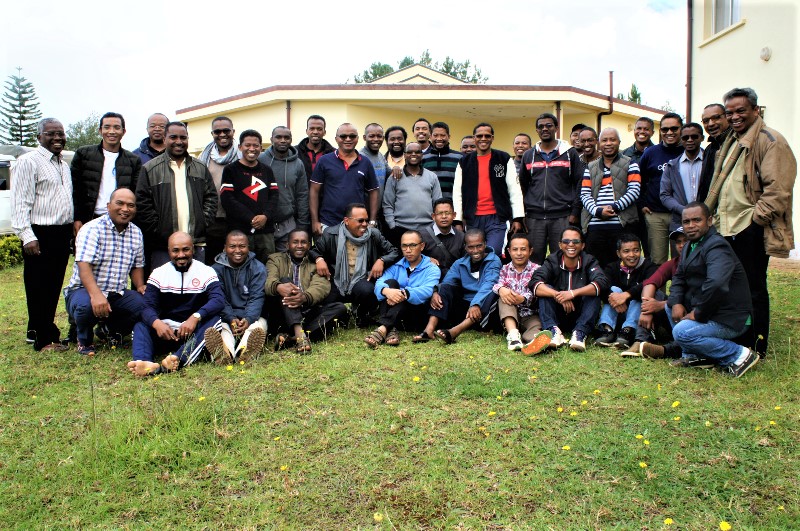
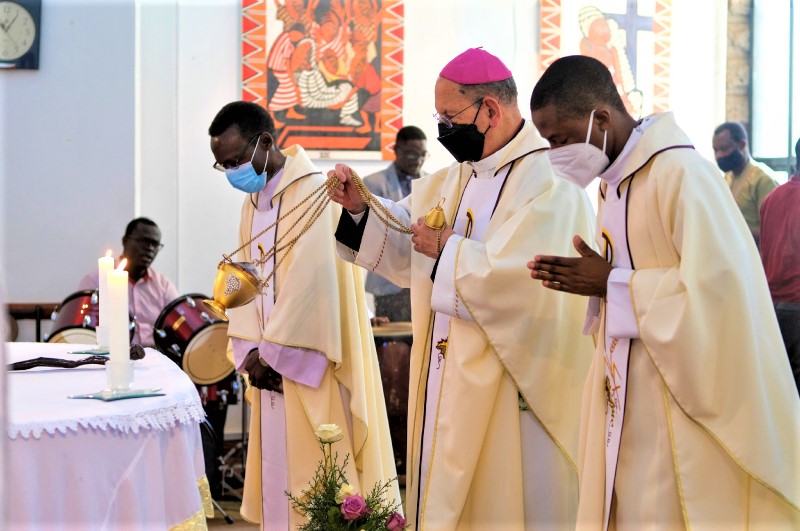
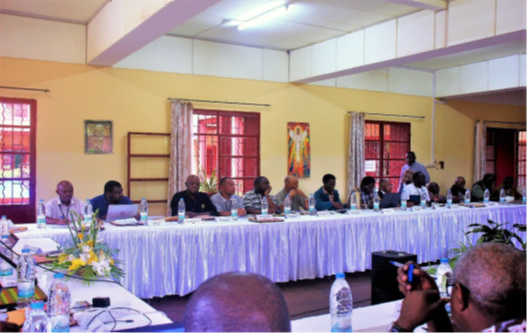

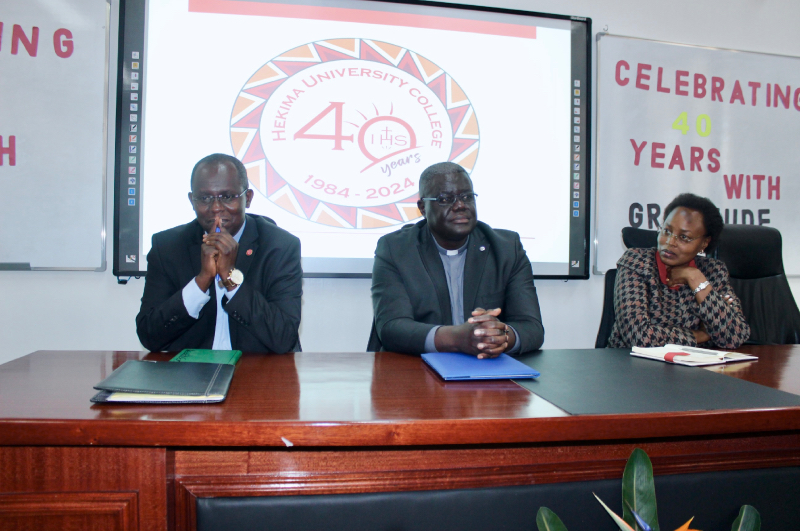
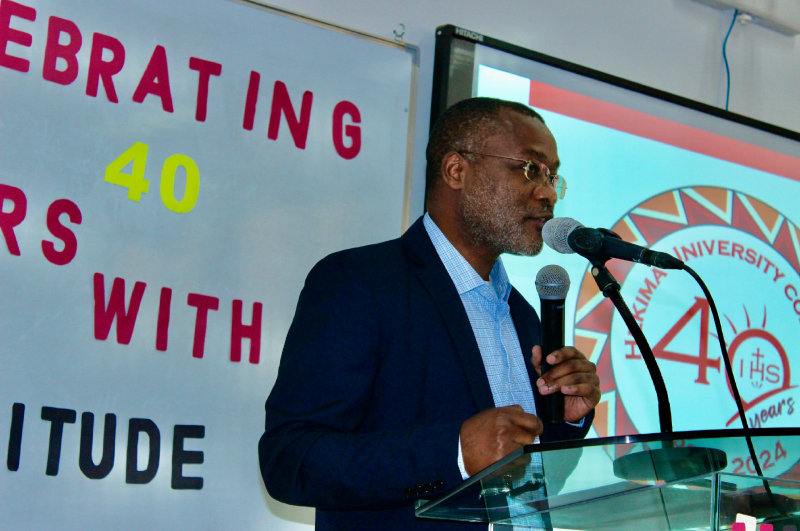
Select Payment Method
Pay by bank transfer
If you wish to make a donation by direct bank transfer please contact Fr Paul Hamill SJ treasurer@jesuits.africa. Fr Paul will get in touch with you about the best method of transfer for you and share account details with you. Donations can be one-off gifts or of any frequency; for example, you might wish to become a regular monthly donor of small amounts; that sort of reliable income can allow for very welcome forward planning in the development of the Society’s works in Africa and Madagascar.
Often it is easier to send a donation to an office within your own country and Fr Paul can advise on how that might be done. In some countries this kind of giving can also be recognised for tax relief and the necessary receipts will be issued.


